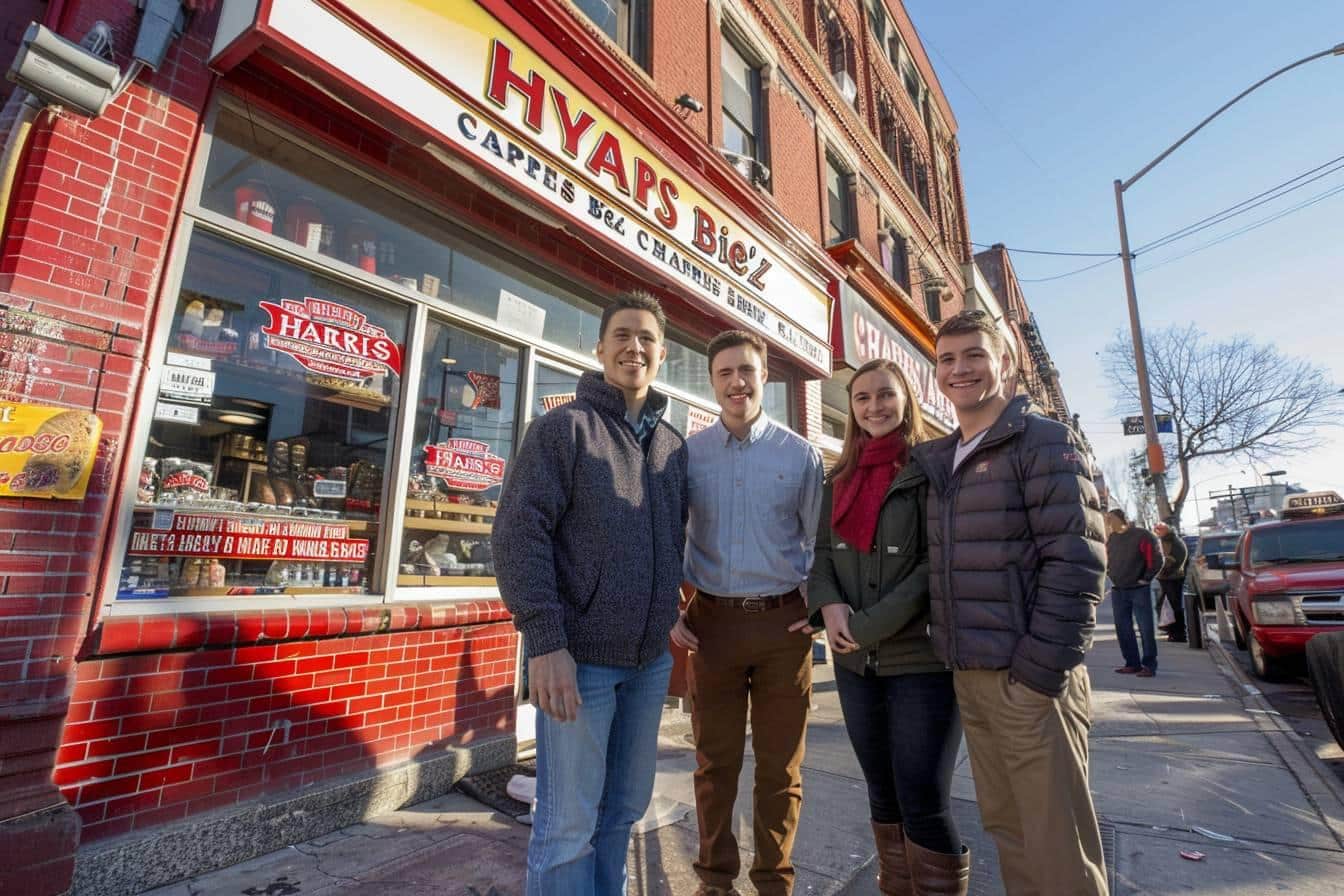A Tale of Two Ads: Jewish Deli Becomes Battleground for Political Influence in Pennsylvania

In the vibrant streets of Philadelphia, a city steeped in American history, Hymie’s, a local Jewish deli, has unexpectedly found itself at the center of a political storm. This culinary landmark, beloved by locals for its authentic deli fare, recently became the backdrop for two controversial political ads that have stirred the local community and highlighted the intense battle for the Jewish vote in Pennsylvania.
From Casual Eatery to Political Arena
The controversy began when the Republican Jewish Coalition (RJC) released an advertisement featuring Jewish actors portraying disillusioned Democrats turning their support to Donald Trump. The ad aimed to paint Trump as a preferable option for Jewish voters, leveraging stereotypes and dramatic shifts in political allegiance. This move sparked immediate backlash from both the local community and wider audiences who felt it misrepresented and exploited Jewish identity for political gains.
Not to be outdone, a Democratic organization swiftly responded by filming a counter-advertisement at the same location. This second ad supported Kamala Harris, featuring real Jewish Pennsylvanians, including former Governor Ed Rendell. Participants criticized the RJC’s approach and reiterated their support for Harris, focusing on her stance against anti-Semitism and her support for democratic values. Governor Rendell’s presence underscored the ad’s authenticity, contrasting sharply with the staged nature of the RJC’s offering.
The Impact on Hymie’s and Its Patrons
The use of Hymie’s as a setting for these political statements has not gone unnoticed by its patrons and the broader Jewish community in Philadelphia. For many, the deli is more than just a place to enjoy a meal; it is a gathering spot where individuals of all ages and backgrounds come together—a neutral ground now caught in the crossfire of political campaigning.
- Community Response: Some regulars feel that the use of Hymie’s in political ads could alienate patrons who prefer to keep dining experiences separate from political discourse.
- Economic Impact: There are concerns that the controversy could impact business negatively, as potential customers might avoid the deli to steer clear of political tension.
- Social Media Reactions: Both ads have ignited extensive debates on social media platforms, with people voicing support or disappointment over the politicization of local businesses.
Jewish Voters: A Crucial Demographic
Pennsylvania is recognized as a critical swing state in national elections, and within its borders, Jewish voters represent a significant and influential community. The targeted ads by both Republican and Democratic entities underscore the importance placed on this demographic. Historically, Jewish Americans tend to lean towards Democratic candidates, but shifts in political landscape and issues such as Israel policy and anti-Semitism are influencing voting behaviors.
Analyzed: The Strategy Behind The Ads
- Linking Opponents with Extremes: Both ads sought to associate the opposing candidate with extreme positions or unsavory groups. The RJC ad connected Harris with anti-Israel sentiments prevalent on college campuses, while the Harris ad pointed to Trump’s perceived inadequacies in condemning white supremacy.
- Mobilizing Voter Bases: By stirring strong emotional responses, both parties aim to energize their bases—prompting not just support but active participation in campaigning and at the polls.
- Influencing Undecided Voters: Swing voters can be pivotal in tight elections. These ads are crafted to sway undecideds by framing their vote as a moral decision rather than just a political one.
Looking Ahead: Implications for Future Elections
The events at Hymie’s deli offer a microcosm of larger trends impacting electoral politics in America—where local businesses and everyday locales become stages for national political narratives. As parties vie for every possible advantage, the role of cultural institutions like Hymie’s in political strategies is likely to grow.
Moving forward, it remains to be seen how this blending of politics with local culture will affect voter engagement and community cohesion. For now, Hymie’s stands as a poignant symbol of how deeply politics can permeate our public—and private—spaces.
In conclusion, while Hymie’s might return to its primary role as a neighborhood deli post-election season, its stint in the political spotlight reflects broader dynamics at play within American democracy today. As communities continue to navigate these complex landscapes, places like Hymie’s remind us that politics is not only pervasive but deeply personal.



